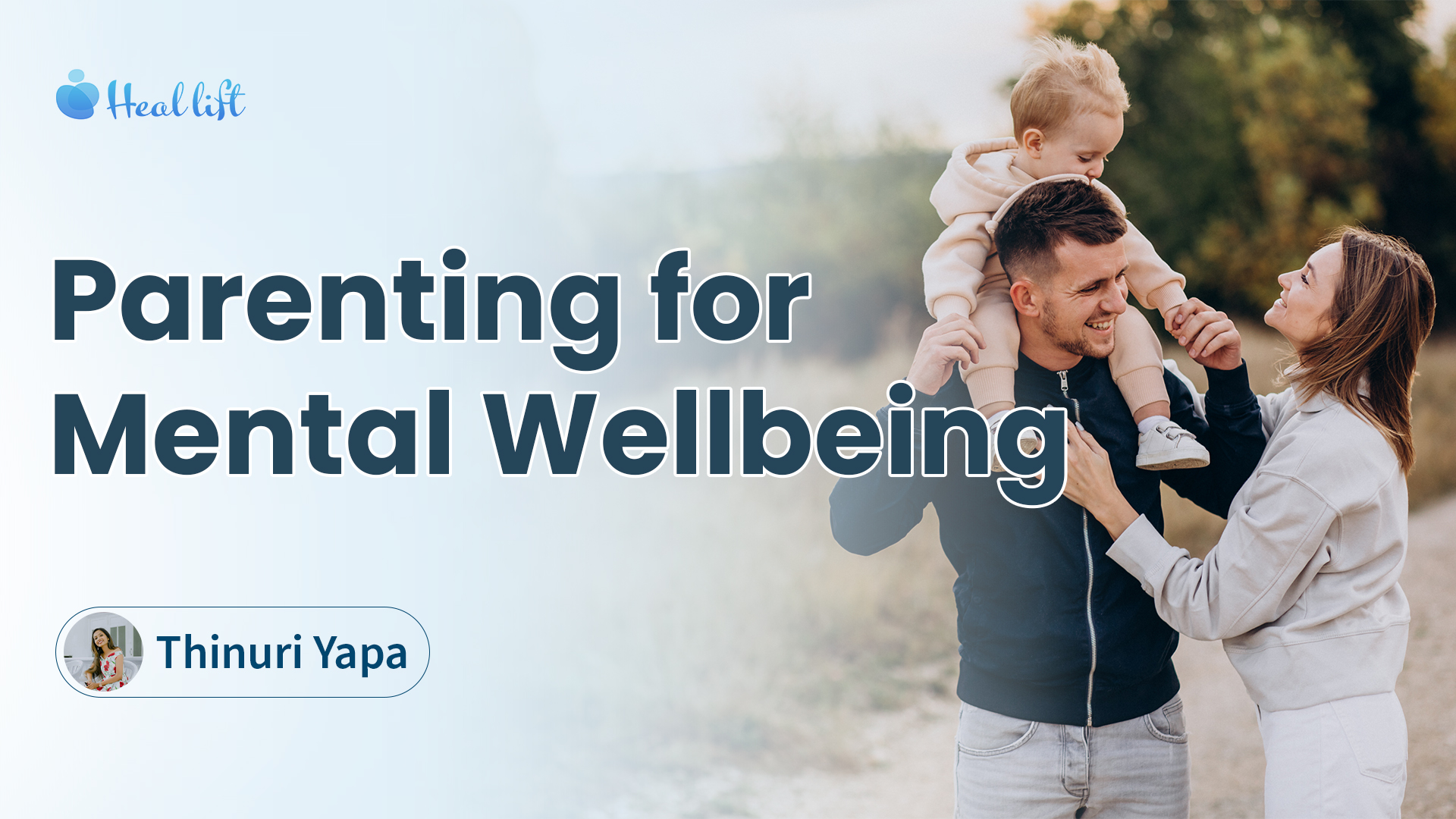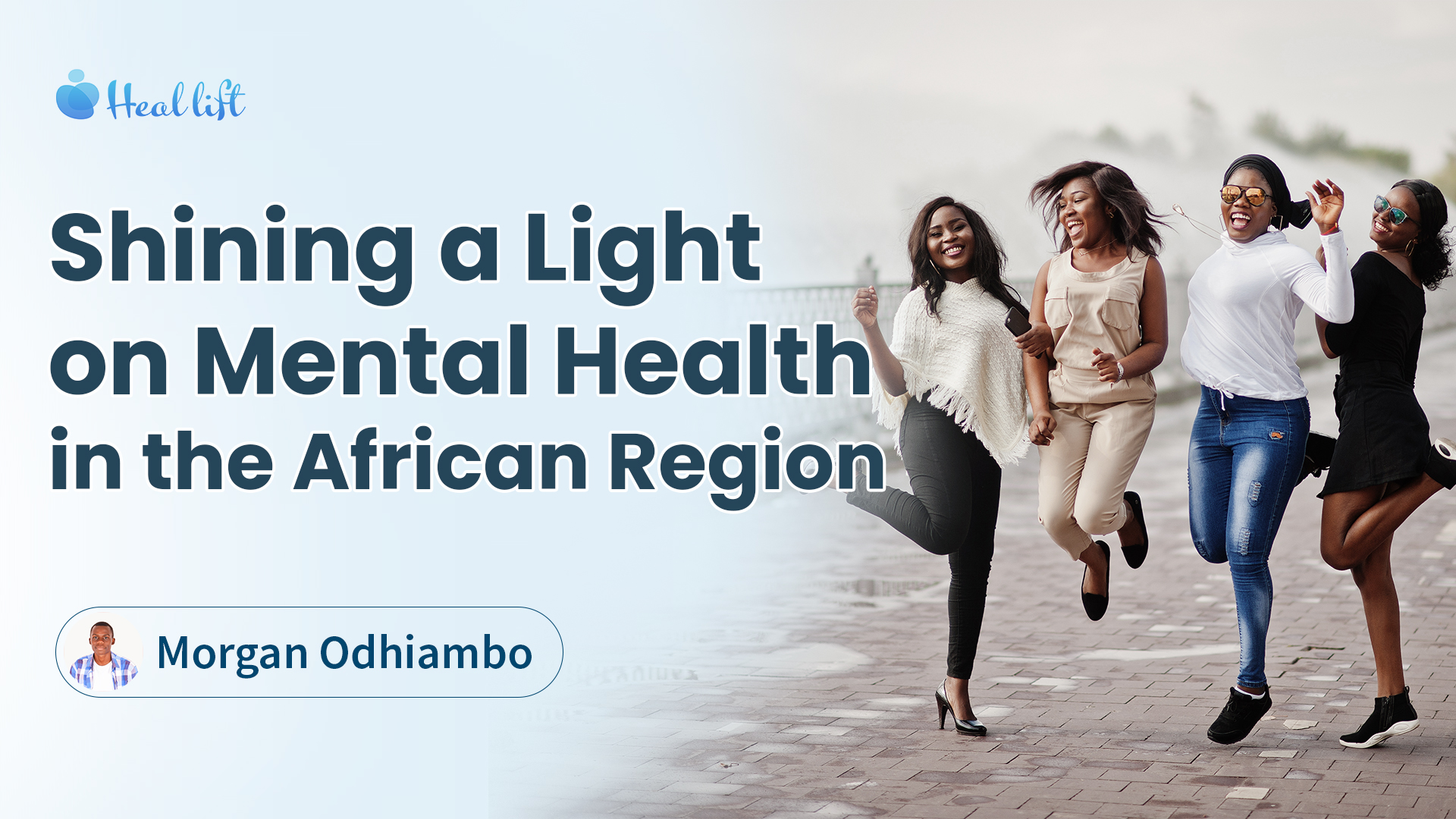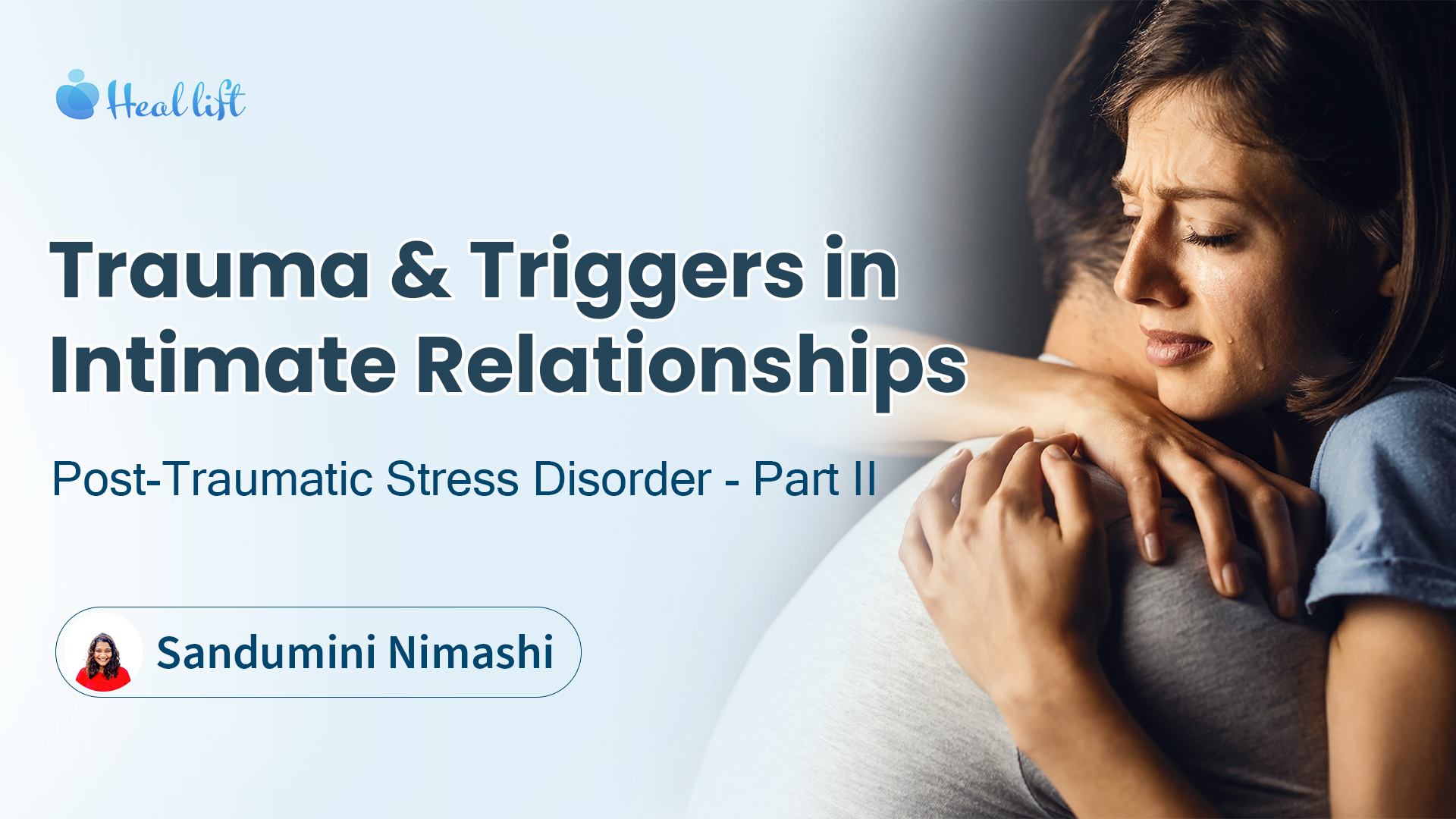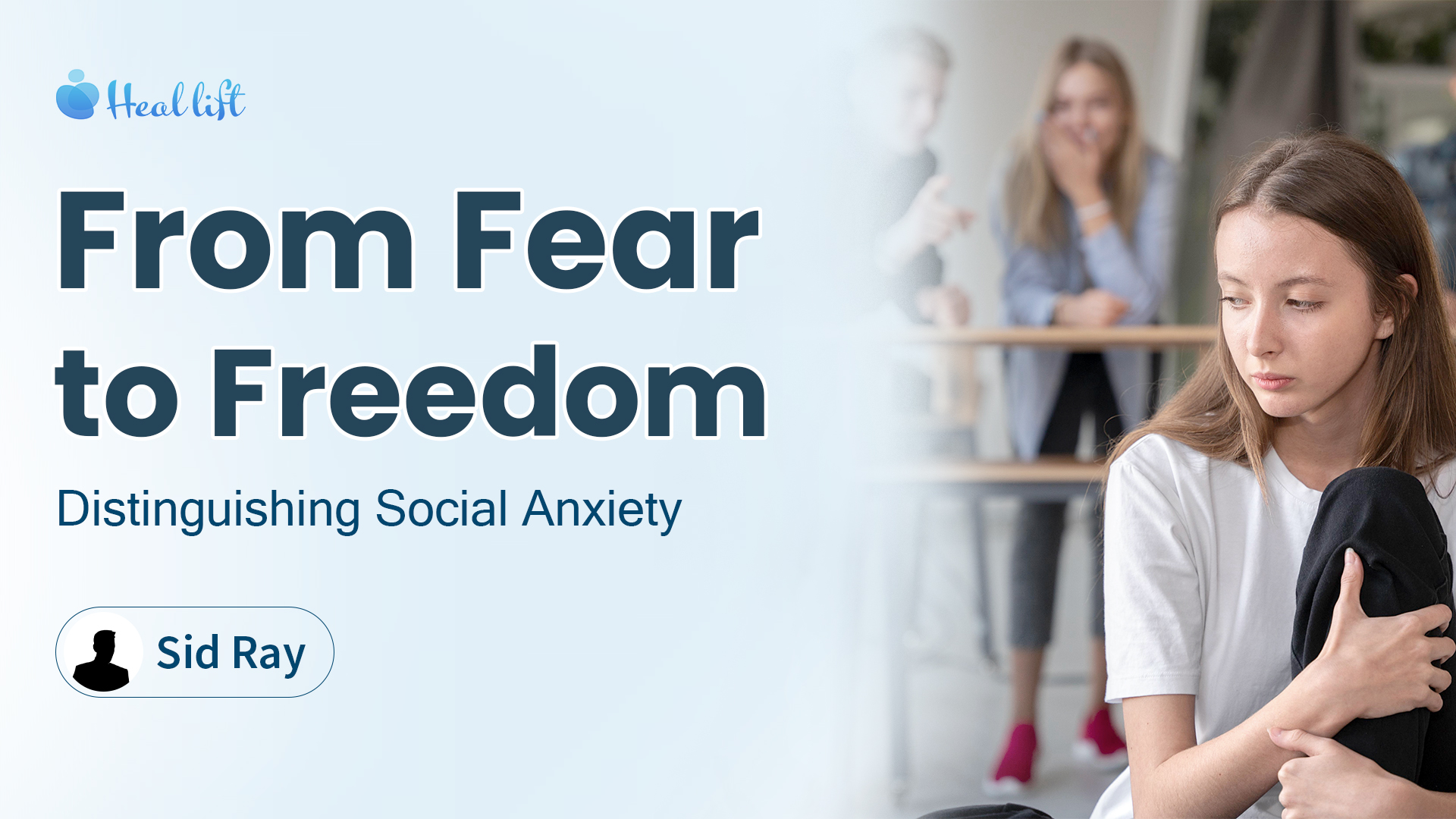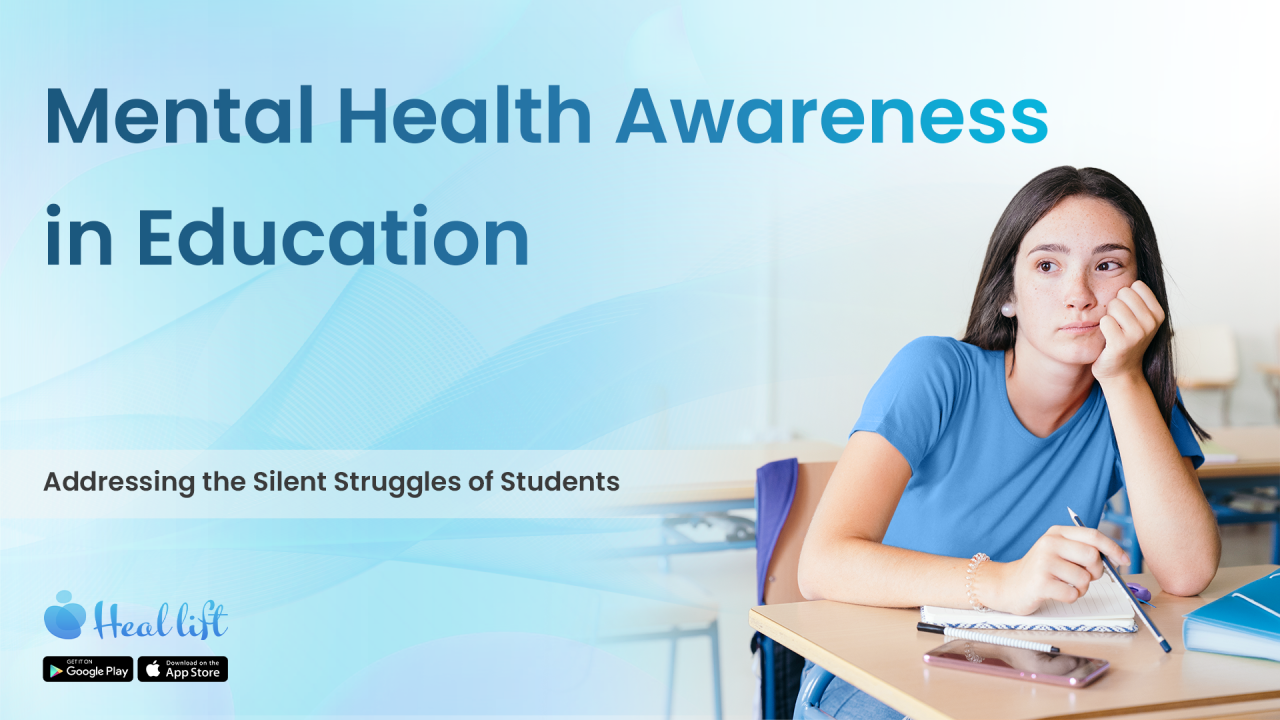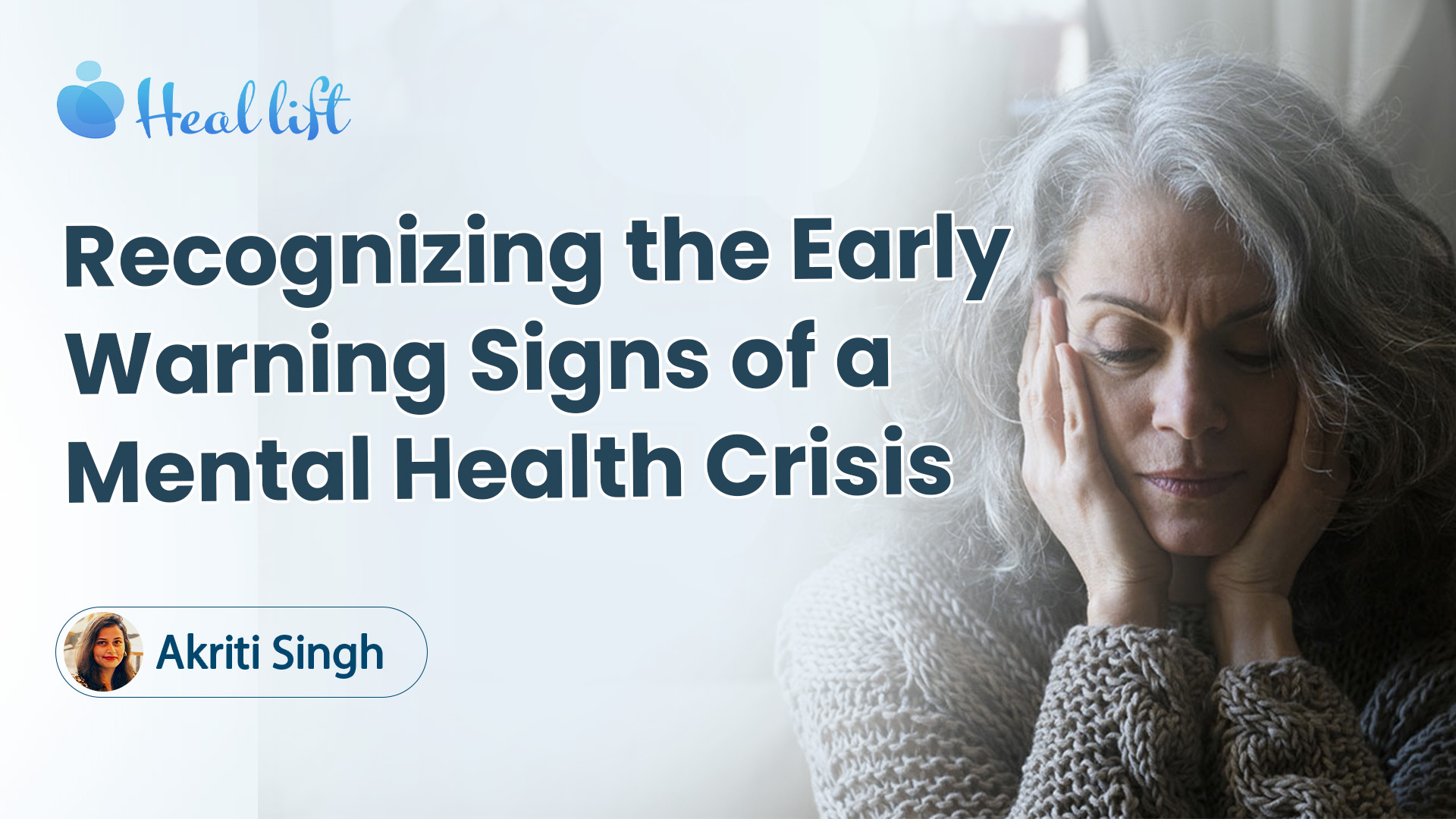Dr. Akriti Singh
-
09 Oct 2024
Recognizing the Early Warning Signs of Mental Health Crisis
Mental health is as important as your physical health and should be your top most priority to look out for yourself and your loved ones. Globally, about 1 in 8 people face mental health issues. Recognizing early warning signs and acting quickly can lead to better outcomes. Support from family and professional help can lessen the impact of these conditions. This article discusses the importance of spotting warning signs, what to look for, and how professional help plays a role in mental health care.
Early Warning Signs of Mental Health Issues
Here are key emotional, cognitive, and behavioral signs that may indicate the start of mental health issues.
1) Excessive Worrying or Fear
Unmanageable anxiety about daily matters is a key feature of generalized anxiety disorder. Individuals with this condition often have ongoing worries about ordinary life events and find it difficult to manage their anxiety. Additionally, irrational fears about certain objects, places, situations, or events may indicate a phobia. Such phobias trigger intense fear and avoidance when confronted with the feared source, even if the fear is not based on logic.
2) Mood Changes
Persistent feelings of sadness, irritability, anger outbursts, or apathy lasting for weeks may indicate depression. This condition is characterized by ongoing low moods, a lack of interest in activities once enjoyed, and decreased energy. Rapid shifts in mood, swinging from very high to very low, can be a sign of bipolar disorder. This disorder involves alternating episodes of mania and depression, with manic phases often marked by increased activity, euphoria, or impulsive behavior.
3) Withdrawing from Others
Disinterest in social activities and withdrawal from relationships may indicate underlying mental health issues such as isolation from loved ones and previously enjoyed hobbies.
4) Difficulty Concentrating
Challenges with focus, lack of motivation, and forgetfulness can arise from stress, anxiety, or depression, making it difficult to complete tasks or make decisions.
5) Disrupted Sleep Patterns
Insomnia or excessive sleeping can interfere with healthy circadian rhythms, negatively impacting mental health. Many mental health issues are associated with challenges in falling asleep, staying asleep, or oversleeping.
6) Changes in Eating Habits
Eating too little or too much regularly can come from or make mental health problems worse. Certain conditions like bulimia, anorexia, and binge eating causes a person to experience changes in appetite leading to eating less or more.
7) Low Self-Esteem
Feeling worthless, guilty, or helpless for a long time may indicate depression or anxiety. People often criticize themselves and feel inadequate during these times.
8) Self-Harming Behavior
Mental health issues that are not treated on time may lead to self-injury, like cutting or burning. It's an unhealthy way to cope with strong emotions.
9) Substance Abuse
Drinking more alcohol, using drugs, or taking more medication to cope can indicate deeper problems. This behavior is often a way to try to numb difficult feelings.
10) Suicidal Thoughts
A person requires immediate help if having thoughts about self-harm, death, or suicide.
Addressing a Mental Health Crisis
When a loved one is in a mental health crisis, your response can significantly affect their situation. It's very important to deal with understanding and empathy. Timely and appropriate responses can prevent escalation and aid in recovery.
1) Practice Patience and Understanding
It's crucial to understand that individuals in a mental health crisis may struggle with their thoughts and behaviors. Approaching them with patience, empathy, and understanding is essential. Offer support and reassurance without judgment, and practice attentive listening to respond appropriately to their needs.
2) Offer Immediate Support
If a loved one shows signs of a mental health crisis, it's important to act fast by encouraging them to get professional help and comforting them as well. Remove any triggers and make sure they are safe. Acting quickly is crucial, as delays can be dangerous. The sooner they get support, the better their chances of recovering.
3) Pursue Professional Assistance
Encouraging a loved one to get professional help during a mental health crisis is very important. Therapy or counseling can provide the support and coping strategies they need. Talking about the benefits and helping them find a good mental health professional can greatly aid their recovery.
Conclusion
Mental health risks can get worse quickly without timely help. It's important to notice emotional, thinking, and behavior signs and seek professional help right away. Addressing these early warning signs can help with diagnosis, ease symptoms, encourage healthy coping, and improve overall well-being. Make mental health a priority for yourself and your loved ones by acting fast as the cause can be reversible and can be dealt with the right support and care.



